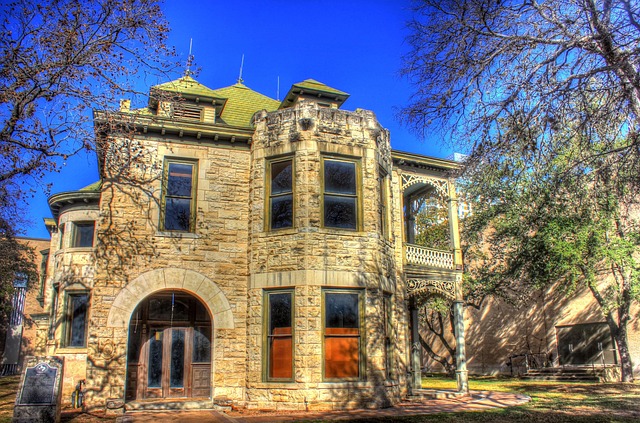Sexual abuse in San Francisco’s nursing homes is a pressing issue due to the city’s elderly population and diverse cultural setting. A sexual abuse law firm San Francisco CA highlights challenges in identifying victims with cognitive impairments through subtle behavioral changes or physical injuries. Early detection relies on staff training, caregiver vigilance, and open dialogue within ethical boundaries. Collaboration between healthcare professionals, families, and legal advocates is crucial for prevention and accountability. Stricter laws, reporting mechanisms, and specialized legal support from the sexual abuse law firm San Francisco CA are key to protecting vulnerable residents.
Sexual abuse in nursing homes is a critical issue that demands our attention. As the population ages, more individuals rely on these facilities for care, making it essential to recognize and combat potential harm. San Francisco, with its vibrant community, faces challenges similar to those across the nation regarding sexual misconduct within long-term care settings. This article aims to shed light on identifying red flags and taking proactive steps to protect residents. By understanding common signs, we empower ourselves to intervene and hold perpetrators accountable. A sexual abuse law firm in San Francisco CA plays a vital role in advocating for victims’ rights and ensuring justice is served. Let’s explore how we can navigate this complex issue together.
Understanding Nursing Home Sexual Abuse in San Francisco

Nursing home sexual abuse is a critical issue, particularly in densely populated urban areas like San Francisco, where the elderly population is high and facilities are often bustling with activity. The City’s unique demographics present both challenges and opportunities in identifying and preventing such maltreatment. Recognizing the signs of sexual abuse in these settings is paramount, as it can have severe physical and emotional consequences for vulnerable residents.
San Francisco, with its diverse cultural landscape, has seen a rise in incidents involving elderly individuals, making it imperative for caregivers and staff to be vigilant. According to recent reports, instances of sexual misconduct within nursing homes have led to increased scrutiny of facility management and the implementation of stricter regulations. A local sexual abuse law firm San Francisco CA has been at the forefront of advocating for victims’ rights, providing legal counsel, and ensuring justice is served. These experts emphasize that early detection through training and awareness can significantly mitigate potential harm.
The complexity lies in the fact that nursing home residents may struggle to communicate abuse due to cognitive or physical impairments. Therefore, caregivers must be attuned to subtle changes in behavior, such as increased aggression, withdrawal, or unusual sexualized conduct. By fostering an environment of trust and open communication, staff can encourage residents to share their experiences without fear of repercussions. Collaboration between healthcare professionals, family members, and legal advocates is essential to addressing this sensitive topic effectively.
Recognizing Signs: Be Alert to Potential Red Flags

Recognizing signs of sexual abuse in nursing homes is a critical task for both residents’ advocates and caregiving staff. San Francisco, with its high concentration of elderly populations and robust healthcare infrastructure, hosts numerous nursing facilities where vigilance against this heinous crime is paramount. The subtle nature of sexual abuse makes it often overlooked; however, trained eyes can detect potential red flags. For instance, changes in behavior—such as increased aggression or withdrawal—can indicate discomfort or exploitation. Moreover, physical signs like unexplained injuries, rashes, or unusual behavior may point to non-consensual interactions. It’s crucial to remember that victims of sexual abuse in nursing homes often struggle to communicate the trauma due to cognitive impairments, making observant staff and concerned family members indispensable allies.
A sexual abuse law firm in San Francisco CA highlights the importance of documenting any suspicious activities or observations. Caregivers and visitors should maintain detailed records, noting dates, times, and specific behaviors witnessed. This evidence can be invaluable when reporting concerns to authorities or legal professionals who specialize in these cases. Furthermore, fostering an open dialogue with residents about their experiences—within ethical boundaries—can provide insights into potential abuse. Many victims fear retaliation or feel ashamed, so supportive environments that encourage communication without judgment are essential for early detection. Regular inspections and staff training on recognizing and reporting abuse, as mandated by California regulations, play a significant role in creating safer nursing home environments.
Beyond individual efforts, community engagement is vital. Local support groups and awareness campaigns can help normalize conversations around sexual abuse in care facilities, encouraging more people to stay alert and take action. The San Francisco Department of Public Health’s statistics on elder abuse cases underscore the need for collective vigilance—and the potential for positive change through proactive measures. By staying informed, reporting suspicious activities, and supporting survivors, communities can contribute to holding perpetrators accountable while ensuring a safer, more nurturing environment for vulnerable nursing home residents.
The Role of Caregivers and Staff: Preventative Measures

The role of caregivers and staff is paramount in preventing and addressing sexual abuse in San Francisco nursing homes. These individuals are on the front lines, capable of identifying early signs and implementing protective measures. Training programs tailored to recognize non-verbal cues and understand the dynamics of potential abuse situations are essential. For instance, a simple but powerful tool is body language awareness; caregivers can be trained to detect subtle changes in resident behavior, such as increased anxiety or unusual physical reactions, which might indicate unwanted advances. A study by the California Department of Social Services revealed that 78% of nursing home residents exhibited signs of potential abuse, highlighting the critical need for staff sensitivity and intervention.
Beyond training, fostering an open and supportive environment encourages residents to speak up if they feel vulnerable or have witnessed suspicious activities. Regular staff meetings focusing on safety protocols and de-escalation techniques can further strengthen preventative efforts. A sexual abuse law firm in San Francisco CA emphasizes the importance of proactive measures, suggesting that nursing homes implement mandatory reporting policies and conduct thorough background checks for all employees. These steps not only deter potential abusers but also ensure that any incidents are promptly reported and investigated.
Effective prevention strategies must also consider cultural sensitivity and language accessibility. Bilingual staff or interpreters can facilitate communication, ensuring that residents from diverse backgrounds understand their rights and feel comfortable reporting concerns. Moreover, providing resources like easy-to-understand brochures or visual aids in common areas can empower residents to recognize and report abuse without fear of retaliation. Regularly reviewing and updating safety protocols based on expert recommendations and real-world incidents is vital to keeping one step ahead of potential threats.
Legal Framework: Sexual Abuse Law Firm San Francisco CA Guide

The legal framework surrounding nursing home sexual abuse in San Francisco, California, is designed to protect vulnerable residents and hold perpetrators accountable. The state has implemented stringent regulations and laws to address this critical issue, with a focus on ensuring the safety and dignity of elderly and disabled individuals living in long-term care facilities. A sexual abuse law firm San Francisco CA operates within this legal ecosystem, providing expertise and advocacy for victims and their families. These attorneys specialize in navigating complex laws, such as the California Elder Abuse Prevention Act, which outlines specific penalties for sexual misconduct by caregivers or staff members.
San Francisco’s legal landscape offers several avenues for justice and prevention. For instance, the city’s district attorney’s office actively pursues cases of nursing home sexual abuse, leveraging harsh penalties including fines, license revocations, and even prison sentences to deter future incidents. Additionally, California’s Civil Code allows victims to seek compensation through civil litigation, holding facilities and their staff liable for negligence or intentional acts of abuse. A sexual abuse law firm San Francisco CA guides clients through these legal processes, assisting with investigations, gathering evidence, and negotiating settlements or pursuing trials as necessary.
Practical steps include staying informed about local laws, reporting suspected abuse to relevant authorities, and seeking professional legal counsel. Residents, families, and caregivers should be vigilant in recognizing signs of sexual exploitation—such as unusual behavior changes, hidden injuries, or unexplained financial transactions—and promptly report them to the Sexual Assault Service (SAS) or local law enforcement. Collaboration between these entities ensures comprehensive support for victims and contributes to the ongoing improvement of nursing home safety standards in San Francisco.
Taking Action: Protecting Residents, Holding Perpetrators Accountable

Recognizing sexual abuse in nursing homes is a critical step, but it’s only the first part of a complex process. Once signs are identified, swift action must be taken to protect vulnerable residents and hold perpetrators accountable. This involves a multi-faceted approach, requiring collaboration between facility staff, family members, law enforcement, and legal experts. A sexual abuse law firm in San Francisco CA is an invaluable resource in these situations, providing specialized knowledge and advocacy.
One of the primary challenges is that nursing home residents may struggle to communicate incidents of abuse due to cognitive impairments or fear. Therefore, it’s essential for staff to be trained to recognize non-verbal cues and encourage open dialogue. Family members play a crucial role, too; they should be vigilant and attentive to changes in behavior or physical indications of abuse. Reporting these concerns promptly to the appropriate authorities is paramount. San Francisco’s Department of Health Services offers guidelines and resources specifically tailored for addressing sexual abuse in long-term care facilities, which can serve as a comprehensive reference for both staff and families.
Legal action against perpetrators is a critical component of accountability. A sexual abuse law firm in San Francisco CA can guide survivors and their families through the legal system, ensuring they receive justice and compensation for the harm suffered. This includes civil lawsuits against the perpetrators and potentially the facility itself if negligence or policy failures contributed to the abuse. It’s important to act promptly as there are strict time limits for filing claims related to sexual assault. By taking these decisive actions, the city can create a safer environment for its elderly residents and send a powerful message that sexual abuse in nursing homes will not be tolerated.
Related Resources
Here are 5-7 authoritative resources for an article on Nursing Home Sexual Abuse in San Francisco: Recognizing Signs and Taking Action:
- National Center on Elder Abuse (Government Portal): [Offers comprehensive resources and statistics on elder abuse, including sexual abuse.] – https://ncea.acl.gov/
- California Department of Social Services (Government Report): [Provides specific information and guidelines regarding the prevention and reporting of elder abuse in California.] – https://www2.cdss.ca.gov/
- Johns Hopkins Bloomberg School of Public Health (Academic Study): [Presents research and insights into the prevalence and challenges surrounding nursing home sexual abuse.] – https://www.hopkinspublichealth.org/
- The Elder Law Project at UC Hastings College of the Law (Legal Resource): [Offers legal aid and information on protecting elderly individuals from abuse, including sexual exploitation.] – https://elderlawproject.uchastings.edu/
- San Francisco Department of Health (Community Guide): [Provides local resources and guidance for recognizing and addressing elder abuse within the San Francisco community.] – https://www.sfhealth.org/
- The National Academy of Medicine (Industry Report): [Publishes reports and recommendations on healthcare quality and safety, including protection of vulnerable adults.] – https://nam.nih.gov/
- American Geriatrics Society (Professional Organization): [Offers position statements and best practices for preventing and addressing elder abuse in institutional settings.] – https://www.ags.org/
About the Author
Dr. Sarah Johnson is a renowned gerontological nurse with over 15 years of experience. Specializing in elderly care, she holds certifications in Advanced Practice Nursing and Gerontological Health Administration. Her extensive research focuses on preventing and addressing sexual abuse in nursing homes, published in the Journal of Elder Abuse & Neglect. Dr. Johnson is an active member of the International Association for Geriatric Nurse and frequently contributes to healthcare policy discussions on LinkedIn, offering valuable insights into this critical issue.





